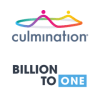Dive Brief:
- While quarterly sales growth for Bristol-Myers Squibb's cancer immunotherapy Opdivo appear to have plateaued, Merck & Co.'s competing Keytruda has widened its lead in a drug market crucial to both companies' future success.
- On Tuesday, Merck reported second quarter sales for Keytruda of $2.6 billion, nearly $400 million more that what the pharma earned over the first three months of the year. Partly as a result, Merck now projects revenue growth of between 7% and 9%, compared to a range of 4% to 7% previously.
- Announcement of Merck's earnings results come a day after the drugmaker disclosed another clinical success for Keytruda, which met its goal in a Phase 3 study testing pre-surgical use of the drug to treat triple-negative breast cancer.
Dive Insight:
Annualized, the second-quarter performance of Keytruda (pembrolizumab) makes the immunotherapy a $10 billion-a-year drug, a bar reached by only a few products in an industry full of billion-dollar molecules.
For now, Keytruda's torrid sales insulate Merck from the kind of growth worries that spurred rival Bristol-Myers to pursue a $74 billion acquisition of Celgene.
Speaking on a second-quarter earnings call, Merck CEO Ken Frazier again dismissed questions of whether the pharma would explore large-scale M&A.
"We think the operational complexity, the cultural disruption and the R&D disruption that has been associated with large mergers counsels that we should not go there, particularly because we feel very confident about our ability to grow our company organically, supplemented by bolt-on deals," Frazier said.
Keytruda's performance in the second quarter contrasts with that of Opdivo (nivolumab), which posted $1.8 billion in sales — roughly the same as what it earned in the third and fourth quarters last year, as well as this year's first quarter.

Bristol-Myers still expects Opdivo sales to increase this year versus last, but more doubt exists for Opdivo's prospects in 2020.
"Given the competitive dynamics and the timing of data readouts, we do think there will be some pressure on Opdivo in 2020," said Chris Boerner, Bristol-Myers' commercial head, on a July 25 earnings call.
Mixed results from a study known as CheckMate-227, disclosed this month, further dent Bristol-Myers' chances of competing more strongly with Keyturda in lung cancer, a key market.
In that trial, Opdivo combined with chemotherapy failed to outperform chemotherapy alone in first-line treatment of non-small cell lung cancer. Keytruda's previous success in that setting has fueled much of its recent sales growth.













